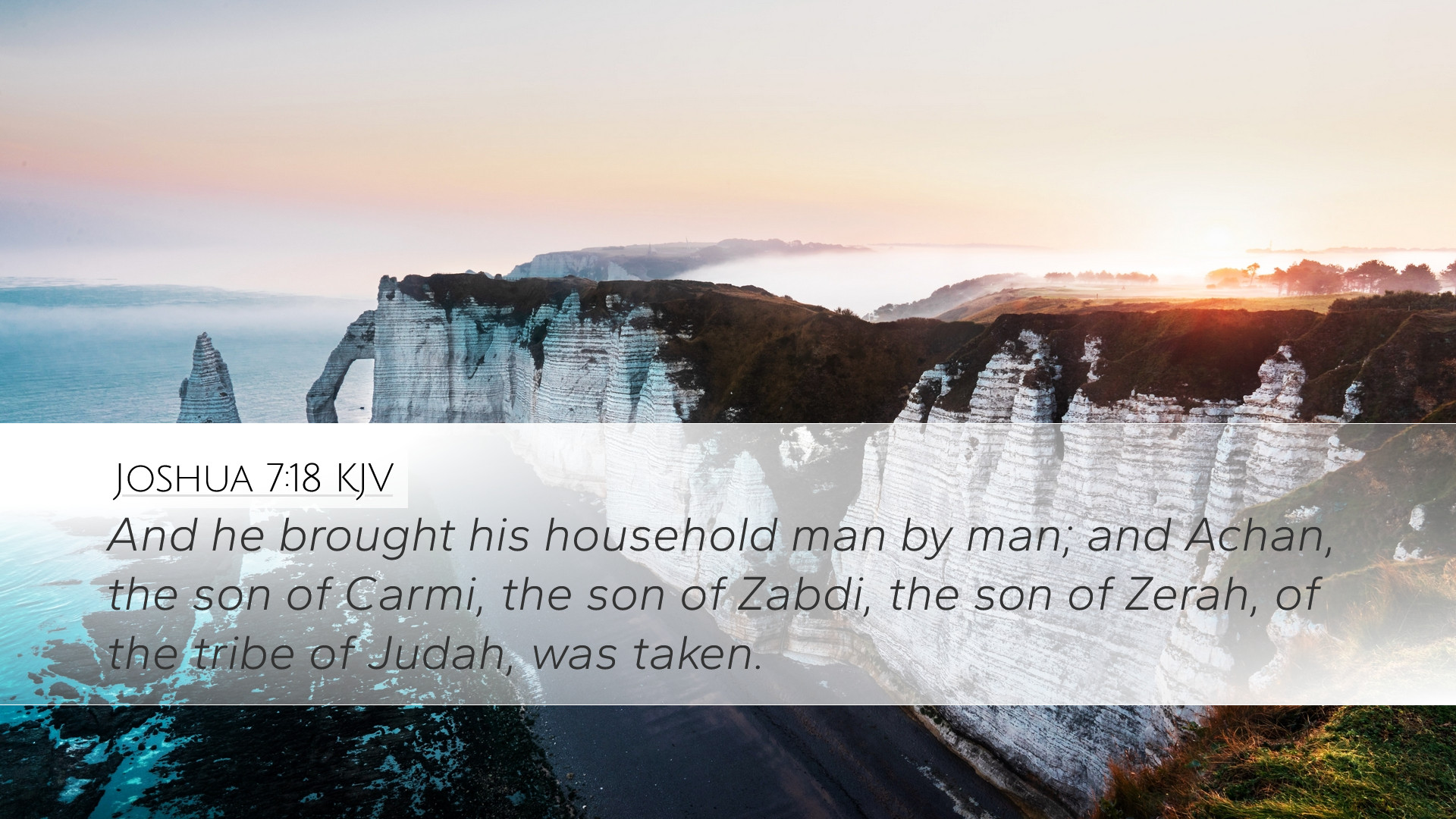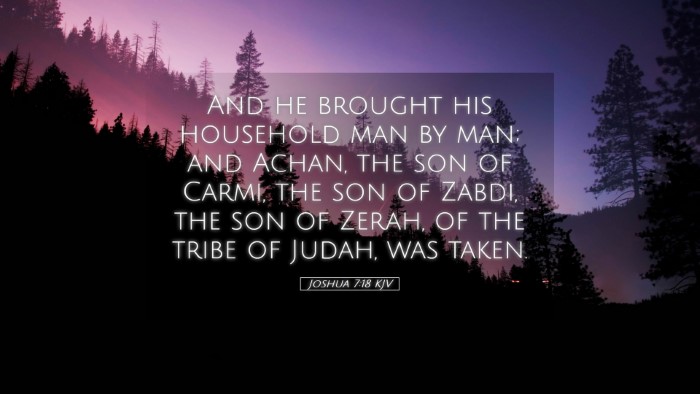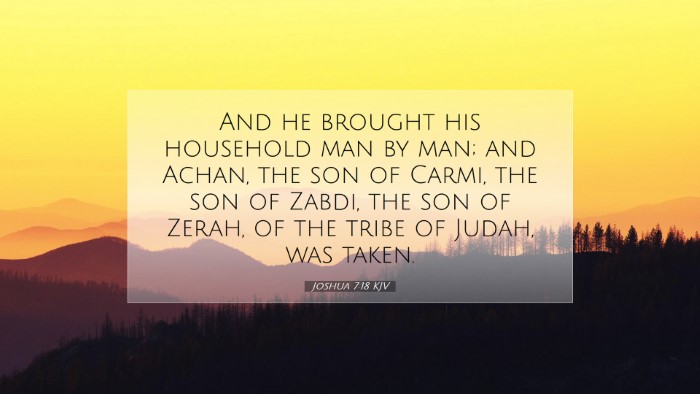Bible Commentary on Joshua 7:18
This commentary synthesizes insights from prominent public domain commentaries, including those by Matthew Henry, Albert Barnes, and Adam Clarke. The verse reads:
Joshua 7:18 (KJV): "And he brought his household man by man; and Achan, the son of Carmi, the son of Zabdi, the son of Zerah, of the tribe of Judah, was taken."
Overview and Context
Joshua 7 describes the aftermath of Israel's first defeat in their conquest of Canaan at the city of Ai. This chapter is pivotal as it highlights the consequences of disobedience to God's commands. Achan's sin of taking forbidden spoils from Jericho leads to dire consequences not only for himself but for the entire nation of Israel.
Commentary Insights
Moral Accountability
Matthew Henry emphasizes the concept of moral accountability present in this passage. Each household and individual is brought forth, illustrating that God's judgment is precise and personal. Achan's lineage is specifically mentioned — a reminder that sin often affects one's family and community. The judgment that falls upon Achan is representative of the corporate responsibility that exists within the covenant community of Israel.
The Role of Divine Revelation
Albert Barnes notes the significance of divine revelation in this event. In bringing Achan forth "man by man," God reveals both the method of uncovering sin and the necessitated process of justice. This reinforces the theological principle that sin is not hidden from God, and His ways of revealing it may be mysterious yet purposeful. God's selection of Achan serves as a stark reminder that His knowledge encompasses all actions, thoughts, and motivations.
The Consequences of Sin
Both commentators highlight the severe consequences of Achan's disobedience. Adam Clarke argues that Achan's theft not only resulted in his own demise but also caused great suffering to the Israelite community, resulting in 36 soldiers dying at Ai. This illustrates the broader principle that individual sin may lead to collective consequences, emphasizing the interconnectedness of the community of faith.
Sin and Its Ramifications
- Disruption of Community: The community suffers due to one individual's actions, underlining the weight of collective sin.
- Divine Justice: God's justice is perfectly executed, showcasing mercy given the opportunity for repentance prior to judgment.
- Preparation for Restoration: The process of exposing sin sets the stage for national repentance and restoration.
Spiritual Lessons
Joshua 7:18 reminds readers of the following spiritual lessons:
- The Seriousness of Sin: Sin is not trivial; it has serious implications for oneself and the community.
- Importance of Accountability: Each member of the faith community should recognize their responsibility toward one another.
- God’s Omniscience: Nothing is hidden from God; individuals must live in the light of His omniscience.
- Call to Repentance: The passage serves as an invitation to confess sin and turn back to God.
Conclusion
In summary, Joshua 7:18 brings forth profound theological insights into the nature of sin, accountability, and God’s justice. Achan's story serves as a cautionary tale for readers and scholars alike, prompting a deep introspection regarding personal conduct, communal responsibility, and the overarching sovereignty of God in the administration of justice. The rich layers of meaning within this narrative engage pastors, students, and theologians to reflect on how they embody and teach these principles within their own contexts.


